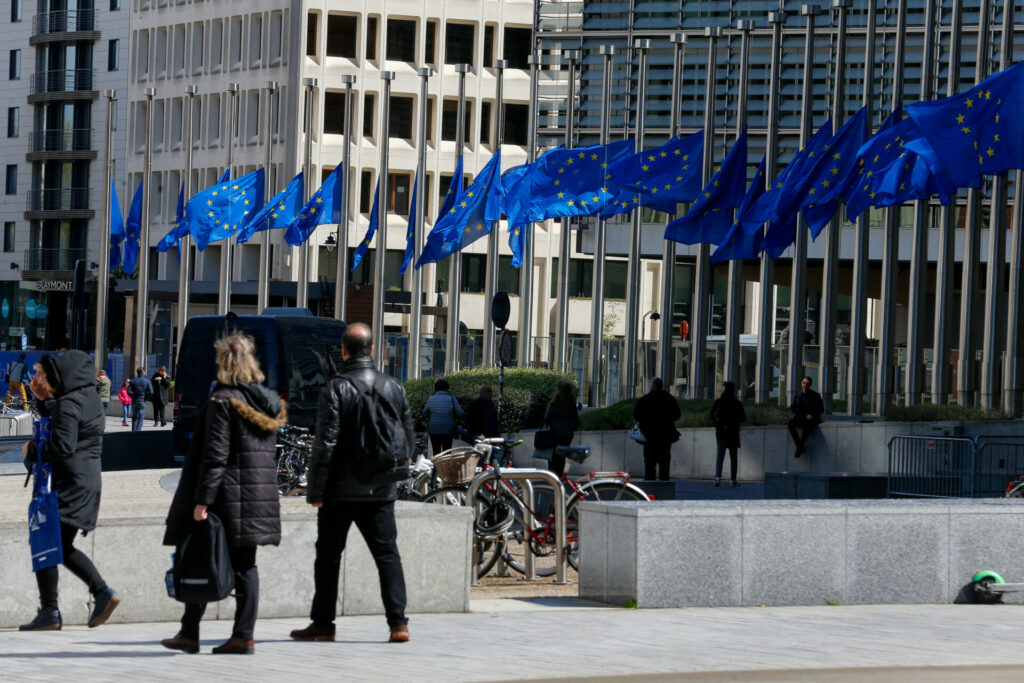Economic uncertainty and political instability in the European Union puts nations within the eurozone and most Member States in severe likelihood of tipping into a recession by the end of this year, the Commission warned.
Following a dark period as a result of the Covid-19 pandemic, the EU economy performed relatively strongly in the first half of the year but has now entered a "much more challenging phase," the Commission wrote on Friday in its new economic growth forecast.
"Amid elevated uncertainty, high energy prices, the erosion of household purchasing power, a weaker external environment and tighter financing conditions, the EU, eurozone and most Member States are expected to tip into recession in the last quarter of the year."
Minimal growth next year
While the euro area growth in 2022 is set to be better than previously forecast (it is expected to reach 3.2%, up from the projected 2.7%), the outlook for 2023 is "significantly weaker" for growth and higher for inflation compared to its Summer interim Forecast when it predicted a eurozone growth of 1.4% next year.
"The economic outlook for next year has weakened and we expect only 0.3% growth of the EU economy next year," Valdis Dombrovskis, the Commissioner for Trade.

Rising inflation, driven by skyrocketing energy and food prices, has impacted the forecast Credit: Belga
"This is a turning point for the EU economy as we deal with the spillovers of Russia’s unprovoked war against Ukraine and a complex geopolitical environment: high energy prices fuelling inflation, people across Europe struggling with rising living costs, and our companies losing competitiveness."
The Commission added that the Eurozone inflation would peak at 8.5% this year. While it should drop in 2023, it is expected to remain at a high level. Meanwhile, consumer prices would still rise by 6.1% next year.
For Belgium, the Commission forecasts economic growth of 2.8% this year and 0.2% next year. Inflation would peak at 10.4% this year, falling to 6.2% next year.
EU assurances
Despite the challenges the EU economy is currently facing, the Commission pointed to the fact that the labour market has continued performing strongly. Employment and participation in the labour market are at their highest: the number of employed persons in the EU increased to an all-time high of 213.4 million. Unemployment is at its lowest in decades (6%).
Labour markets are expected to react to the slowing of economic activity with a lag, but to remain resilient, the Commission explained.
Related News
- Von der Leyen warns of 'potentially difficult' gas supplies in 2023
- Belgium launches website with tips to reduce energy bills
"This strong labour market coupled with reforms and investments in the Recovery and Resilience Facility should help to support the economy," Dombrovskis said.
"Our focus now is to support the most vulnerable with targeted measures, align fiscal and monetary policies to tackle inflation, and secure our future energy supplies as fast as possible."

